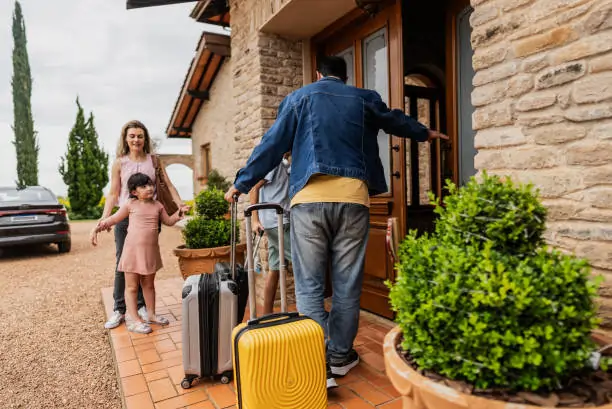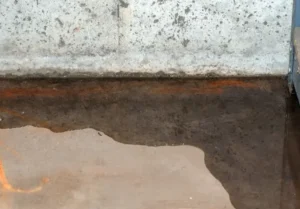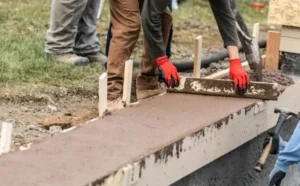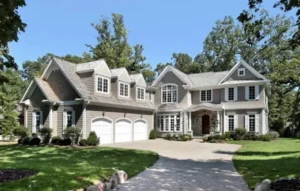Managing short-term vacation rentals is more demanding than ever, requiring hosts and property managers to juggle everything from guest communication to cleaning logistics—all while maintaining the highest level of service. The rapid growth of platforms such as Airbnb, VRBO, and Booking.com has led to increased competition, guest expectations, and operational complexities for rental hosts. In today’s digital age, automation has become a powerful tool to ensure that operations remain smooth, efficient, and guest-centric. By embracing automation, operators can transform their daily workflows, minimize tedious manual labor, and free up valuable time—resources that can then be redirected into delivering exceptional experiences for their guests and driving business growth. Modern tools, such as a VRBO cleaning application, integrate seamlessly within property management ecosystems, offering automated solutions that streamline repetitive tasks like scheduling, billing, and tracking. Automation enhances rental processes, service quality, and hosts’ peace of mind by simplifying operations and fostering guest relationships. Smart technology automates tasks, from check-ins to guest inquiries, with tools such as automated messaging, real-time pricing, and predictive maintenance, creating a seamless and professional environment. Guests expect higher standards, making automation essential for competitiveness and satisfaction. It also provides hosts with peace of mind by ensuring quick and consistent guest service across multiple properties.
Property managers now utilize analytics and smart home systems to secure assets, optimize turnover, and enhance guest experiences. Real-time dashboards offer insights into occupancy, maintenance, and preferences, enabling better decisions and outcomes. Automation extends beyond task delegation to a proactive, data-driven business model, improving housekeeping and pricing. Staying updated with sources like The Wall Street Journal helps managers adapt to market changes. This overview covers key automation strategies and innovative tools that reduce workload, boost guest satisfaction, and increase operational efficiency for hosts and managers.
Streamlining Guest Communication
Effective and prompt communication is crucial in the short-term rental business, as it fosters trust, comfort, and a positive overall guest experience. Automated messaging platforms and AI chatbots now handle as much as 85% of routine guest interactions, instantly answering FAQs, sending welcome messages, confirming bookings, and delivering pre-arrival instructions. These systems ensure that every guest inquiry or request is acknowledged and resolved promptly, enabling hosts to maintain professionalism and dependability even during peak seasons or when they’re unavailable in person. By removing human response delays, messaging automation also prevents miscommunications and enhances the likelihood of receiving stellar guest reviews. According to Forbes, adopting smart messaging tools enhances operational efficiency while significantly reducing the mental load for hosts who manage multiple properties and cater to diverse guest needs. Ultimately, automation enables hosts to provide a high-touch service experience without being tied to their phones 24/7.
Enhancing Check-In and Check-Out Processes
Today’s guests value flexibility and autonomy, particularly when it comes to their arrival and departure times. Automated check-in and check-out systems—such as keyless entry using Wi-Fi-enabled smart locks—have become industry standards for facilitating secure, seamless guest transitions. These innovations enable hosts to remotely grant guest access, eliminating the need for in-person key exchanges or the use of costly lockboxes. They also provide guests with personalized codes valid only during their reservation period, offering added security and peace of mind. Automated check-in instructions, triggered by booking confirmation, clarify directions and procedures for new arrivals, ensuring a smooth start to every stay. Likewise, automated check-out reminders help guests adhere to departure schedules without any last-minute confusion, leading to more predictable turnovers, easier cleaning coordination, and fewer negative reviews related to misunderstandings about the process. In the rare case of late check-outs, an integrated system enables hosts to be alerted in real-time, allowing for quick resolution and improved property management logistics.
Implementing Smart Home Technologies
Equipping rental units with connected smart home devices such as Wi-Fi thermostats, smart lighting, noise monitoring devices, and security cameras delivers tangible benefits for both hosts and guests. Hosts can adjust settings remotely—such as lowering thermostats when properties are vacant or ensuring lights are on before guest arrivals—to maximize energy efficiency and maintain a safe environment. The ability to monitor noise levels helps prevent parties and property misuse, protecting investments and neighboring properties. Guests benefit by effortlessly controlling comfort settings, lighting, and even entertainment systems from their smartphones, which gives them a sense of luxury and personalized service. The convenience of accessing property features through voice commands or mobile devices can also make a property stand out in a crowded vacation rental marketplace. Additionally, automated sensors can track air quality, humidity, or door activity, enabling a rapid response to potential issues before they escalate.
Leveraging Predictive Maintenance
Unexpected equipment breakdowns, power outages, or urgent repairs can disrupt guest stays and cause significant headaches for property managers. By integrating predictive maintenance tools powered by artificial intelligence, property managers can proactively monitor critical systems, including HVAC, plumbing, and appliances, to identify issues before they become urgent problems. These solutions analyze usage data and spot patterns that forecast when maintenance will likely be needed, minimizing the risk of last-minute emergencies and costly downtime. Automated maintenance alerts can be set up to remind managers of routine upkeep, inspections, or filter changes, reducing the need for manual monitoring. Predictive analytics also facilitates budget planning, as recurring trends highlight which assets require more attention and potential replacement schedules. Overall, leveraging predictive maintenance helps keep operating costs predictable, prolongs equipment lifespans, and, most importantly, ensures that guests are comfortable and satisfied throughout their stay.
Optimizing Pricing Strategies
Achieving the perfect intersection between high occupancy rates and maximum profitability demands the use of dynamic pricing tools. These advanced software solutions continuously monitor and analyze real-time market data, competitor rates, historical occupancy trends, seasonality, events, and local demand to suggest the most competitive nightly rates for each property. Automated pricing adjustments enable listings to remain competitive and attractive to potential guests without requiring hosts to continually research or manually update rates. Sophisticated pricing engines can also respond to market fluctuations—adjusting rates for last-minute vacancies or special events to maximize revenue. Hosts benefit from maintaining competitive visibility and maximizing income while limiting the risks of underpricing or missed bookings. For additional insights on maximizing profits with smart technology and data, industry experts recommend consulting thought leadership from Forbes Business Council, which provides in-depth recommendations on automated revenue management and marketing strategies.
Automating Cleaning and Maintenance Schedules
Reliable turnover processes are crucial for the success of short-term rentals, but manual coordination between cleaners, maintenance staff, and property managers increases the risk of costly human errors. Automated scheduling applications integrate with booking calendars and trigger cleaning requests or maintenance alerts the instant a reservation is confirmed or changed, ensuring that every property is guest-ready on time and to the highest standards. These platforms enable hosts and managers to track task completion, manage cleaning inventory, and receive instant updates on task status as soon as jobs are completed. Automated systems can also help prevent scheduling conflicts, double-booked crews, and oversights that could negatively impact incoming guests. By leveraging these features, property managers can ensure a consistently clean and well-maintained environment, which ultimately results in higher guest satisfaction ratings, more repeat bookings, and a stronger brand reputation.
Utilizing Digital Guidebooks
Digital guidebooks have fundamentally transformed the guest experience in vacation rentals, providing travelers with an immediate and user-friendly source of essential information and local insights. These packets include everything guests need to know—from appliance operating instructions and Wi-Fi credentials to safety procedures, property policies, neighborhood recommendations, and curated lists for dining, entertainment, and transportation options. Guidebooks can be quickly updated by hosts to reflect changes in the area or property features, ensuring that all information provided to guests is current and accurate. By encouraging guest autonomy, digital guidebooks significantly reduce repetitive questions for hosts, minimize confusion, and enable guests to fully enjoy their stay. Additionally, clear digital instructions mitigate the risk of accidental damage caused by unfamiliar equipment use, further protecting the host’s investment while enhancing the guest’s comfort and experience.
Conclusion
Automating daily operations in short-term vacation rentals is no longer reserved solely for large property management companies—it’s now accessible and essential for solo hosts and small operators seeking a competitive edge. Smart integration of technology enables property managers to work more efficiently, deliver consistently memorable guest experiences at scale, and ultimately drive greater profitability. As guest needs and industry standards continue to evolve, automation represents a forward-looking, strategic investment for anyone seeking to stand out and succeed in the rapidly changing world of short-term rentals.
Read more: Preventing Common Roofing Problems: Essential Maintenance Tips – Croudmomentum.com
How Dress-Casual Shoes Blend Style with Comfort – Croudmomentum.com
How to Incorporate a Fire Pit Into Your Outdoor Kitchen or Patio Design – Croudmomentum.com








